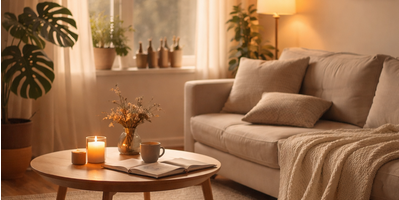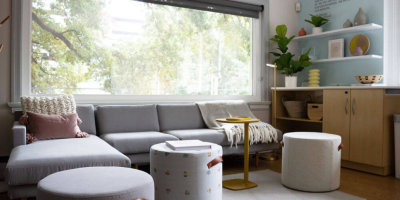We all know the feeling — you’re scrolling late at night, promising yourself “just five more minutes,” and suddenly it’s well past midnight. You put your phone down, but your brain feels wired instead of ready to rest.
If this sounds familiar, you’re not alone — and there’s a growing body of research showing just how much our digital habits and sleep quality shape our mental health.
The Sleep–Mood Connection
Sleep isn’t just “downtime” for your body; it’s essential for emotional regulation, focus, and resilience. When we’re sleep-deprived, the brain’s amygdala — the part that processes emotions — becomes more reactive, while the prefrontal cortex (responsible for reasoning and calm decision-making) slows down.
The result? We feel more anxious, irritable, and overwhelmed — and our ability to manage stress drops significantly.
Even one night of poor sleep can make small problems feel much bigger the next day.
The Digital Overload Problem
Our devices keep us connected — but they also keep our nervous systems on alert. Endless notifications, doomscrolling, and constant information streams activate our brain’s stress response. Over time, this “always on” state can contribute to anxiety, burnout, and difficulty focusing.
Social media, in particular, tends to trigger comparison, FOMO (fear of missing out), and self-criticism — all of which quietly chip away at our mood and self-esteem.
How Screens Disrupt Sleep
Blue light from screens suppresses melatonin, the hormone that signals your body that it’s time to wind down. Combine that with stimulating content (emails, news, TikToks), and our brains get a double hit of alertness right when we’re supposed to relax.
Even if you fall asleep quickly, late-night screen time can reduce deep sleep quality — leaving you feeling foggy the next morning.
Small Shifts That Make a Big Difference
You don’t need to swear off screens entirely (most of us can’t!). Instead, try small, realistic changes that protect both your sleep and your mental well-being:
🕒 Create a “digital sunset.” Try putting devices away 30–60 minutes before bed. Use that time for something that helps your mind slow down — like reading, stretching, or journaling.
🌙 Keep the phone out of the bedroom. If possible, charge it in another room. A simple alarm clock can replace your phone for mornings.
📱 Use “Do Not Disturb” mode or bedtime settings to reduce late-night notifications.
💡 Dim screens at night or use “night shift” mode to minimize blue light exposure.
🧘 Find low-stimulation evening rituals. Guided relaxation, meditation apps (used earlier in the evening), or a warm shower can help your body cue rest.
Why It Matters for Mental Health
Improving sleep hygiene and reducing digital overload isn’t just about feeling more rested — it’s about emotional regulation, self-compassion, and presence.
People who work on sleep and screen boundaries often notice better focus, calmer moods, and less emotional reactivity within just a few weeks.
If You’re Struggling
If you’ve tried changing your habits but still feel exhausted, anxious, or “wired but tired,” therapy can help uncover what’s keeping your mind in overdrive. Sometimes, poor sleep is tied to anxiety, trauma, or depression — all of which can be gently explored and treated.
You don’t have to figure it out alone. Our team at Calgary Mental Health & Wellness Centre supports adults, teens, and families in building healthier habits, managing anxiety, and finding more balance in daily life.
Want to feel calmer, clearer, and better rested?
Reach out or Click Here to book a session with one of our therapists today — we’d love to help you get back to feeling like yourself again.







